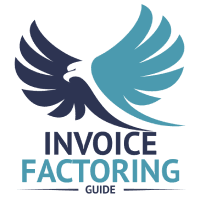
Questioning the importance of invoice validation or what to expect during the process? While this extra layer of scrutiny may seem like overkill or make some businesses a little uneasy at the start, it actually has benefits for your company and typically occurs within a matter of hours of invoice submission—or even instantly upon submission in some cases. Below, we’ll walk you through the process and what to expect.
Invoice Validation Explained
Invoice validation is the process of verifying the accuracy and legitimacy of an invoice before it’s factored. Think of it as a quality check that ensures everything is in order before advancing funds. This step protects both you and the factoring company by confirming that the invoice represents a genuine transaction and that the payment will be made as expected.
Key Elements of Invoice Validation
When validating an invoice, factoring companies typically check for the following:
- Correct Customer Details: The invoice is sent to the right customer, with accurate names, addresses, and contact details.
- Agreement to Payment Terms: The invoice terms match the agreed-upon payment terms between you and your customer.
- Completion of Services or Delivery of Goods: It’s confirmed that the goods or services listed on the invoice have been delivered or completed to the customer’s satisfaction.
- No Prior Payments or Disputes: The invoice hasn’t already been paid or is tied to any ongoing disputes.
How Invoice Validation Fits into the Factoring Process
Invoice validation is a critical step in the factoring process, acting as the bridge between submitting your invoices and receiving funds. It ensures that the invoices you submit are legitimate, error-free, and likely to be paid by your customers. Let’s break it down step-by-step so you can see exactly where it fits.
The Factoring Process: A Brief Overview
- Onboarding: You sign an agreement with the factoring company, setting the terms and conditions for how factoring will work.
- Invoice Submission: You send invoices to the factoring company, typically through their portal or via email.
- Invoice Validation: The factoring company verifies each invoice to confirm that it’s valid and collectible.
- Advance Payment: Once the invoices are validated, the factoring company advances most of the invoice’s value to you.
- Customer Payment: Your customer pays the factoring company directly when the invoice is due.
- Final Settlement: After receiving full payment from your customer, the factoring company deducts their fee and releases the remaining funds to you.
Where Invoice Validation Happens
Invoice validation occurs after submission but before funding. It’s the checkpoint that prevents errors, fraud, or disputes from disrupting the factoring process.
For example, if your customer contests an invoice, it can delay payment or jeopardize the funds the factor advanced to you. Validation ensures that these issues are addressed before any money changes hands, keeping the process smooth and predictable.
The Importance of Invoice Validation for Your Business
Invoice validation isn’t just a safeguard for factoring companies. It offers significant benefits to your business as well. By ensuring the accuracy and legitimacy of your invoices, this step sets the stage for faster funding, stronger customer relationships, and fewer headaches down the road.
Faster Access to Funds
Validation ensures your invoices are clean and free of issues, allowing the factoring company to process them quickly. This means you get the advance payment you need without unnecessary delays.
Improved Cash Flow Management
By resolving potential disputes or errors upfront, invoice validation ensures a steady flow of funds. It eliminates the risk of cash flow interruptions caused by disputed or unpaid invoices.
Stronger Customer Relationships
The validation process often involves confirming the details of the invoice with your customer. This extra touchpoint reinforces professionalism and transparency in your business relationships.
Reduced Administrative Burden
Invoice validation shifts some of the workload to the factoring company. They handle the verification process for you, giving you more time to focus on growing your business.
Enhanced Business Reputation
A validated invoice reflects your business operations well. It shows that you’re organized, detail-oriented, and trustworthy—a big plus for both your customers and factoring companies.
Prevention of Costly Errors
Mistakes in invoices can lead to disputes, late payments, or even customer dissatisfaction. Validation acts as a safety net, catching these errors before they cause problems.
Minimized Risk of Fraud
Invoice validation protects you from unknowingly factoring fraudulent or duplicate invoices. This safeguard helps maintain the integrity of your business operations.
The Importance of Invoice Validation for the Factoring Company
Invoice validation is a critical part of the factoring process for the factoring company, ensuring they can provide efficient, reliable service while reducing risks. By confirming that invoices are accurate and collectible, factoring companies protect their business and yours.
Mitigates Financial Risk
Factoring companies take on significant risk by advancing funds on invoices. Validation ensures the invoices are legitimate, the amounts are accurate, and the customer intends to pay, reducing the chance of non-payment.
Improves Cash Flow Predictability
Validated invoices give factoring companies confidence that payments will arrive on time, allowing them to manage their own cash flow more effectively. This predictability enables them to provide better terms and faster funding to other clients.
Strengthens Client Relationships
By validating invoices, the factoring company can identify and resolve potential issues before they escalate. This proactive approach builds trust with both their clients (businesses like yours) and the customers paying the invoices.
Ensures Compliance and Due Diligence
Factoring companies operate in a heavily regulated environment. Invoice validation helps them comply with anti-fraud measures, legal obligations, and industry standards, reducing exposure to liabilities.
Prevents Double Factoring or Fraud
Invoice validation protects factoring companies from funding duplicate or fraudulent invoices. This safeguard is especially important when dealing with businesses managing high invoice volumes.
Enhances Operational Efficiency
A validated invoice is less likely to cause problems later in the process. By catching errors and discrepancies upfront, the factoring company avoids time-consuming disputes and collections issues.
Protects Against Customer Defaults
Validation includes checking the creditworthiness of the customer paying the invoice. This step reduces the risk of advancing funds on invoices tied to unreliable customers.
Methods of Invoice Validation in Factoring
Factoring companies use several methods to validate invoices, ensuring that they’re accurate, legitimate, and collectible. These methods vary based on the complexity of the invoice, the industry, and the factoring company’s processes, but they all serve the same purpose: protecting both the factor and the business submitting the invoice.
Credit Checks on Customers
Before advancing funds, factoring companies usually conduct a credit check on your customer to assess their payment reliability. This ensures that the customer has a history of paying their invoices on time.
Direct Customer Verification
Factoring companies may contact your customer directly to confirm key details about the invoice. This is one of the most common and straightforward methods.
Document Cross-Referencing
Factoring companies often compare the invoice to related documents, such as:
- Purchase Orders: Ensures the invoice matches what was ordered.
- Proof of Delivery (POD): Confirms that goods were delivered or services were completed.
- Contracts or Agreements: Verifies that the invoice aligns with the terms initially agreed upon.
Automated Validation Systems
Some factoring companies use technology to streamline validation. Automated systems can cross-check invoice details with existing customer records, flag discrepancies like duplicate invoices or missing data, and track historical payment trends for specific customers. This method is fast, efficient, and ideal for businesses submitting high volumes of invoices.
Verification Calls
Factoring companies may perform quick phone calls to customers to confirm invoice details. This personal touch ensures there’s no misunderstanding about the invoice or payment terms.
How Factoring Companies Handle Validation Issues

When validation issues arise, factoring companies follow structured processes to resolve them while minimizing disruptions to both your cash flow and their operations. These issues can stem from errors, disputes, or missing information, but with clear communication and proactive measures, they’re usually resolved quickly.
Identifying the Issue
The first step is pinpointing the exact problem. Common validation issues include:
- Discrepancies in Invoice Details: Errors in amounts, customer information, or payment terms.
- Customer Disputes: The customer denies receiving goods or services, or challenges the invoice amount.
- Missing Documentation: Supporting documents like proof of delivery (POD) or signed contracts are incomplete or unavailable.
- Duplicate Invoices: An invoice that has already been submitted or factored shows up again.
Communication with Your Business
Once an issue is identified, the factoring company will typically reach out to you to clarify the situation. They’ll explain what’s missing or problematic and request any necessary corrections or documentation.
Customer Contact
If the issue involves the customer, the factoring company will also typically request that your team work with the customer to resolve the issue. However, depending on their policies, they may directly contact them to verify the invoice details and resolve any disputes. This step can include:
- Confirming Delivery or Service Completion: Asking for confirmation of delivery or work done.
- Clarifying Payment Terms: Resolving misunderstandings about due dates or agreed amounts.
- Negotiating Disputes: Facilitating a resolution if the customer disputes the invoice.
Correcting Errors
If the issue is a simple error, such as a typo in the invoice or missing documentation, it’s usually resolved quickly by submitting the corrected information.
Holding or Rejecting Invoices
In more complex cases, the factoring company may temporarily hold the invoice or reject it altogether. This happens when disputes can’t be resolved in a timely manner or the invoice fails to meet the factoring company’s criteria. If an invoice is rejected, you won’t receive an advance on that particular invoice.
Proactive Solutions
To prevent similar issues in the future, factoring companies often suggest ways to improve your invoicing process:
- Streamlining Documentation: Providing templates or checklists to ensure all required documents are included.
- Customer Education: Encouraging you to clarify payment terms and expectations with customers upfront.
- Onboarding Support: Offering guidance for new clients to understand the factoring process better.
Continuous Monitoring
Once an issue is resolved, factoring companies may increase their monitoring of your invoices temporarily. This ensures that the problem doesn’t repeat and builds confidence in your submissions.
Breeze Through Accuracy Checks with an Experienced Factoring Company
An experienced factoring company will walk you through their expectations and provide guidance so you can breeze through invoice validation and get paid faster. To get started, request a complimentary rate quote.

FAQs on Invoice Validation in Factoring
Why is effective invoice validation important for businesses?
Effective invoice validation ensures faster funding, avoids disputes, and strengthens customer relationships. By confirming invoice accuracy, businesses minimize delays, maintain cash flow stability, and prevent costly errors or disputes. It also builds trust with factoring companies, paving the way for long-term financial partnerships.
How does invoice validation impact the factoring process?
Invoice validation occurs after submission and before funding. It ensures that the invoice is legitimate and likely to be paid. This step reduces the risk of funding delays or rejections, streamlines cash flow, and ensures a smooth factoring process for both businesses and factors.
What methods do factoring companies use to validate invoices?
Factoring companies validate invoices by contacting customers directly, cross-referencing documents (like purchase orders and proof of delivery), performing credit checks, and using automated systems to flag discrepancies. These methods ensure accuracy and protect against errors or fraud.
What happens if an invoice fails validation in factoring?
If an invoice fails validation, the factoring company may reject it or delay funding until the issue is resolved. Common issues include customer disputes, missing documentation, or discrepancies in details. Addressing the problem promptly ensures future funding proceeds smoothly.
Can invoice validation delay funding from a factoring company?
Yes, if issues arise during validation, such as missing documents or customer disputes, funding may be delayed. However, most factoring companies aim to resolve validation issues quickly, ensuring minimal disruption to your cash flow.
What documents are required for invoice validation?
Documents often needed for invoice validation include the invoice itself, purchase orders, proof of delivery (POD), contracts, and any relevant communication with customers. Providing these upfront ensures faster validation and funding.
How does invoice validation help prevent disputes and chargebacks?
Validation confirms that invoices match customer expectations, ensuring agreed-upon terms are met, and disputes are minimized. By catching errors or discrepancies early, it prevents chargebacks, improves cash flow reliability, and enhances customer trust.
How does invoice validation ensure compliance and regulatory requirements are met?
Validation includes verifying that invoices meet legal and contractual standards, reducing the risk of regulatory violations. For example, ensuring proper documentation or checking customer creditworthiness protects against fraud and supports compliance with industry norms.
How can I avoid common validation issues when factoring invoices?
To avoid validation issues, ensure invoices are accurate, include all required documents, and match customer agreements. Communicate clearly with customers about payment terms and address disputes promptly. Using automation or templates can streamline the process.

About Invoice Factoring Guide
Related Articles
Get an instant funding estimate
Results are estimates based on the calculated rate and the total invoice amount provided.
Actual rates may vary.
Request a Factoring Rate Quote
PREFER TO TALK? Call us at 1-844-887-0300










